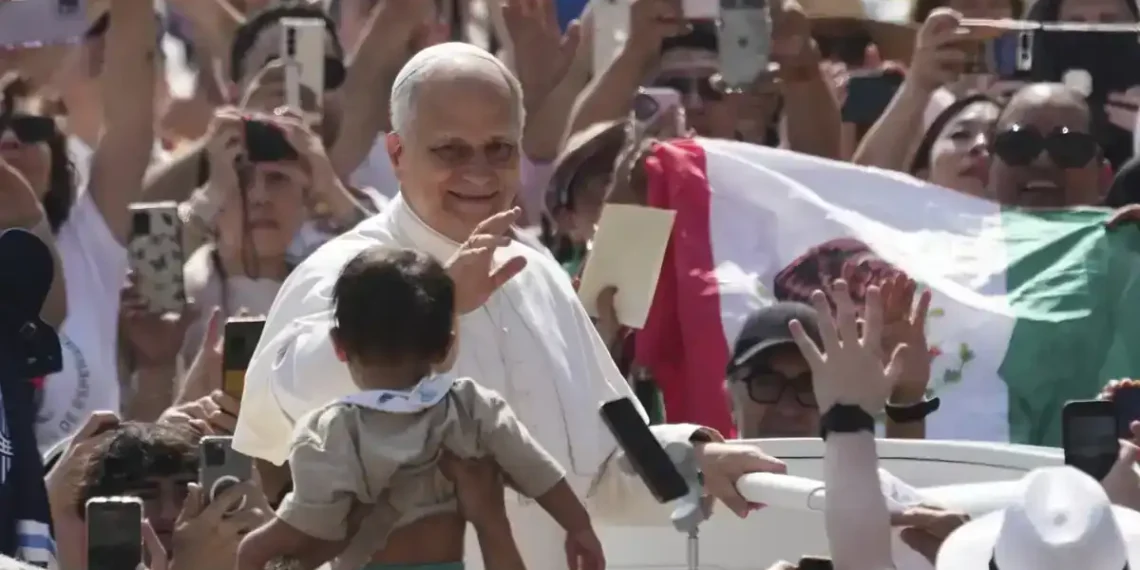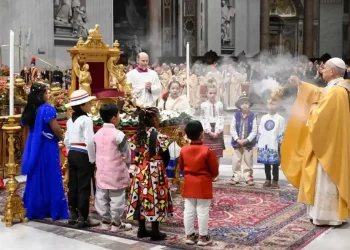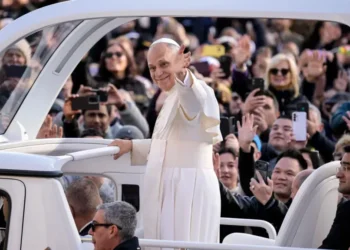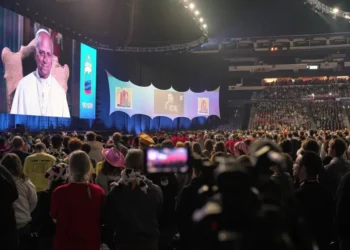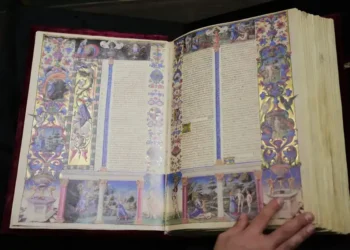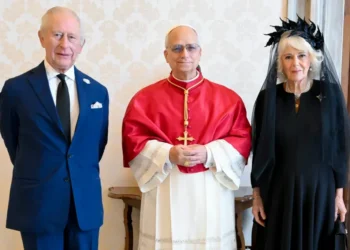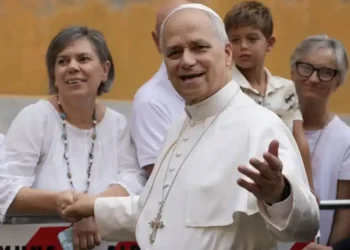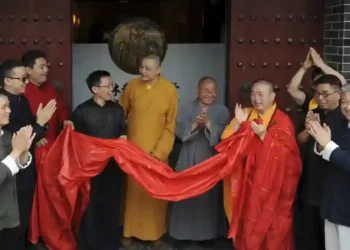Pope Leo XIV, the First U.S.-Born Pontiff, Is Winning Over American Catholics — But Many Are Still Waiting to See What’s Next
Just weeks into his historic papacy, Pope Leo XIV — the first U.S.-born leader of the Catholic Church — is already earning high marks from American Catholics. But a new AP-NORC poll shows many across the country are still getting to know him.
According to the survey, about two-thirds of American Catholics say they view Pope Leo favorably, with fewer than 1 in 10 expressing a negative opinion. However, roughly 3 in 10 Catholics admit they don’t yet know enough about him to say either way.
Among the general public, views are also largely positive — for those who’ve formed an opinion. The poll found that 44% of U.S. adults overall have a favorable impression of the new pope, while a similar number say they’re still unsure. Again, only about 1 in 10 express an unfavorable view.
A Pope with Bipartisan Appeal
Despite America’s deep political divides, Pope Leo is making inroads across party lines. Roughly half of Democrats and about 4 in 10 Republicans and independents say they view him favorably. Republicans are more likely to say they’re still undecided — but they’re not more likely to view him negatively. Across the political spectrum, only about 1 in 10 express an unfavorable opinion.
For many, hope springs from the idea that Pope Leo can bridge divides — both inside and outside the Church.
“I’m optimistic. Certainly, the first pope from the United States is significant,” said Terry Barber, a 50-year-old Democrat from Sacramento, California. He’s hoping for “a more progressive and modern church,” and believes Leo might bring some fresh ideas even while staying rooted in tradition.
On the other side of the aisle, Victoria Becude, a 38-year-old Republican from Florida, said she’s also hopeful. “I’m rooting for him,” she said. “I hope that America can get back to faith, and I hope he can do that.”
Unity Over Division
One of Pope Leo’s early promises has been to foster unity in a Church that has struggled with internal polarization in recent years. That message appears to be resonating. The poll shows no major partisan divide among Catholics themselves, with many expressing hope that Leo can move past the tensions of Pope Francis’ tenure.
He’s already begun to send signals about his priorities. Recently, he spoke out against rising nationalist movements, calling instead for “reconciliation and dialogue.” It’s a message that echoes his pledge to position the Church as a global symbol of peace.
As Cardinal Robert Prevost, Pope Leo was instrumental in one of Pope Francis’ major reforms: appointing women to the Vatican board that vets bishop nominations. While he’s maintained traditional teachings that women cannot be ordained as priests, his support for women in leadership roles is seen by many as a step forward.
“I expect he’ll continue promoting women in governance roles,” said Donald Hallstone, a 72-year-old Catholic from Oregon. “Women were not excluded in the first centuries. It’d be great to see them in those roles again.”
Diverse Hopes — and Some Contradictions
While some Catholics hope Pope Leo will push the Church in a more modern direction, others are hoping for a return to stricter doctrine — particularly on issues like same-sex marriage and abortion.
Becude, the Republican from Florida, for example, supports Pope Leo’s stance on marriage being between a man and a woman. But she diverges from Church teaching when it comes to abortion.
“I don’t believe that they should stop women from having abortions,” she said. “We should have our own rights, because you don’t know the circumstances behind the reason why a woman would want one in the first place.”
The mixed expectations underscore the balancing act Pope Leo faces: staying true to Church doctrine while responding to a rapidly changing world and increasingly diverse flock.
Younger Americans Still Forming Opinions
Not surprisingly, many Americans outside the Catholic Church — including Protestants and the religiously unaffiliated — haven’t yet formed strong opinions about Pope Leo. Around half of born-again Protestants, mainline Protestants, and religious “nones” say they don’t know enough about him to decide.
Still, younger Americans tend to be more cautious in forming opinions. Only about 4 in 10 adults under 30 say they have a favorable view of Pope Leo — but they’re also not hostile, with just 1 in 10 expressing a negative view.
For some, like Mercedes Drink, 31, a nonreligious woman from Minnesota who grew up in the pope’s hometown of Chicago, Pope Leo represents potential for positive change.
“I like him because he brings something different,” she said. “As a young woman, I hope he can bring change … open the world’s eyes to modernizing the church, bringing more people in, having more diversity.”
A Papacy Just Beginning
For now, Americans seem open-minded — even cautiously hopeful — about the direction Pope Leo XIV might take the Catholic Church. With relatively few detractors and many still undecided, his early months offer a rare window of goodwill.
But as his agenda comes into focus, opinions are likely to evolve. Whether he leans into reform or tradition, Pope Leo’s papacy will almost certainly shape the future of American Catholicism — and its place in the modern world.
This article was rewritten by JournosNews.com based on verified reporting from trusted sources. The content has been independently reviewed, fact-checked, and edited for accuracy, neutrality, tone, and global readability in accordance with Google News and AdSense standards.
All opinions, quotes, or statements from contributors, experts, or sourced organizations do not necessarily reflect the views of JournosNews.com. JournosNews.com maintains full editorial independence from any external funders, sponsors, or organizations.
Stay informed with JournosNews.com — your trusted source for verified global reporting and in-depth analysis. Follow us on Google News, BlueSky, and X for real-time updates.
